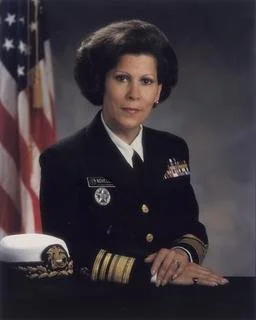Pioneers of Prevention
Three Women Who Transformed Vaccine Science and Public Health Across Generations
In honor of National Immunization Awareness Month, we recognize the remarkable contributions of three pioneering women whose work has transformed global health through the development and promotion of life-saving vaccines. Dr. Isabel Morgan’s early research in the 1940s helped lay the foundation for the polio vaccine by demonstrating the potential of a killed-virus approach. Decades later, Dr. Antonia Novello championed public health in Hispanic communities, advocating for vaccine access, disaster relief, and equitable care for vulnerable populations. Most recently, Dr. Katalin Karikó’s groundbreaking research on mRNA technology played a crucial role in the rapid development of COVID-19 vaccines. Together, their efforts have saved countless lives and exemplify the vital role of women in advancing medical science.
Dr. Isabel Morgan
Isabel Morgan was a groundbreaking virologist whose work in the 1940s significantly advanced the fight against polio. After earning a doctorate in bacteriology, she conducted research at Johns Hopkins University, where she focused on developing a safer alternative to the live-virus vaccines being explored at the time. Morgan concentrated on creating a vaccine using a killed form of the poliovirus, aiming to trigger immunity without the associated dangers of using a live virus. Her experiments with monkeys provided strong evidence that this method could be effective, laying a scientific foundation that later researchers, including Jonas Salk, who is credited with discovering the polio vaccine, would expand upon. After getting married, in an unforeseen turn of events, she stepped away from polio research, spending much of her energy and time caring for her new husband and stepson. Most agree that the development of her polio vaccine was a year or two ahead of Salk, and if she had continued, we’d be referring to the Morgan vaccine. Her careful and innovative approach had a lasting impact on vaccine development. (Guerrini, 2021)
Dr. Antonia Novello
Antonia Novello, the first woman and first Hispanic U.S. Surgeon General, dedicated her career to advancing public health—especially for women, children, and minorities. Born in Puerto Rico and personally affected by childhood illness, she was inspired to become a doctor. After specializing in pediatric nephrology, she transitioned to public health, contributing to key legislation and public health policy, including organ transplant regulations and tobacco warnings. Appointed Surgeon General in 1990, she led initiatives against underage smoking, HIV transmission, and domestic violence. Novello was also a strong advocate for childhood immunizations, promoting vaccination access and education to prevent the spread of infectious diseases. Later roles included work with UNICEF, Johns Hopkins, and New York State, as well as continued advocacy into retirement. Even in retirement, Antonia Novello remained active in public health, joining a 2017 relief mission to Puerto Rico after Hurricane Maria and administering COVID-19 vaccines in San Juan in 2021. That same year, she joined fellow former Surgeons General at the White House to promote vaccine access and outreach in communities of color (Brandman, 2021).
Dr. Katalin Karikó
Dr. Karikó is a Hungarian-born biochemist whose pioneering research in RNA biology led to the development of mRNA technology, crucial for the creation of COVID-19 vaccines. Her efforts, often conducted under challenging conditions and limited funding, led to the development of modified nucleosides that make mRNA more stable and less immunogenic. This work, particularly in collaboration with Dr. Drew Weissman, addressed the challenges of mRNA instability and immune response, enabling the safe and effective use of mRNA in vaccines. This breakthrough has revolutionized vaccine technology and promises advancements in the treatment of various diseases, earning her numerous prestigious awards. Karikó and Drew Weissman were jointly awarded the 2023 Nobel Prize in Medicine for their discoveries that enabled the modified mRNA technology used in Pfizer-BioNTech and Moderna’s vaccines to prevent COVID-19 infection (WIMLF, 2024).
These three trailblazing women—Dr. Morgan, Dr. Novello, and Dr. Karikó—represent the enduring impact of scientific dedication, advocacy, and innovation in the fight against infectious disease. Their achievements remind us that progress in public health is built on decades of perseverance and collaboration, and that expanding access to vaccines remains a critical step toward a healthier, more equitable future for all.
References and for Further Reading:
Guerrini, A. (2021, June 15). Searching for Isabel Morgan: Reconsidering the fate of an overlooked polio fighter. Distillations. Science History Institute. Retrieved August 5, 2025, from https://www.sciencehistory.org/stories/magazine/searching-for-isabel-morgan/
Brandman, M. (2021, October). Antonia Novello. National Women’s History Museum. Retrieved July 14, 2025, from https://www.womenshistory.org/education-resources/biographies/antonia-novello
Women in Medicine Legacy Foundation. (2024, August). Highlighting vaccine innovators: Dr. Katalin Karikó’s legacy. WIMLF. Retrieved July 14, 2025, from https://www.wimlf.org/blog/highlighting-vaccine-innovators-dr-katalin-kariks-legacy



